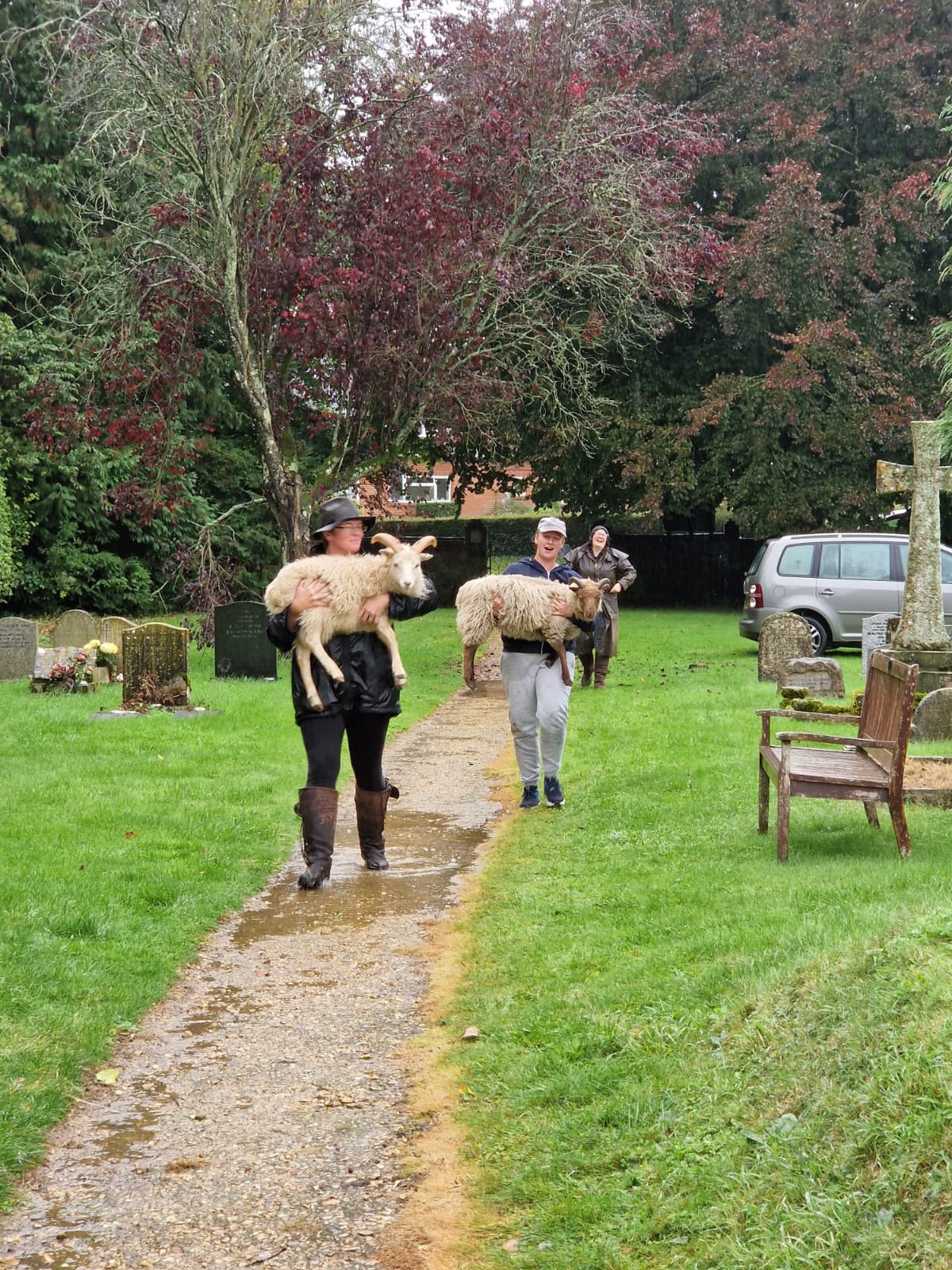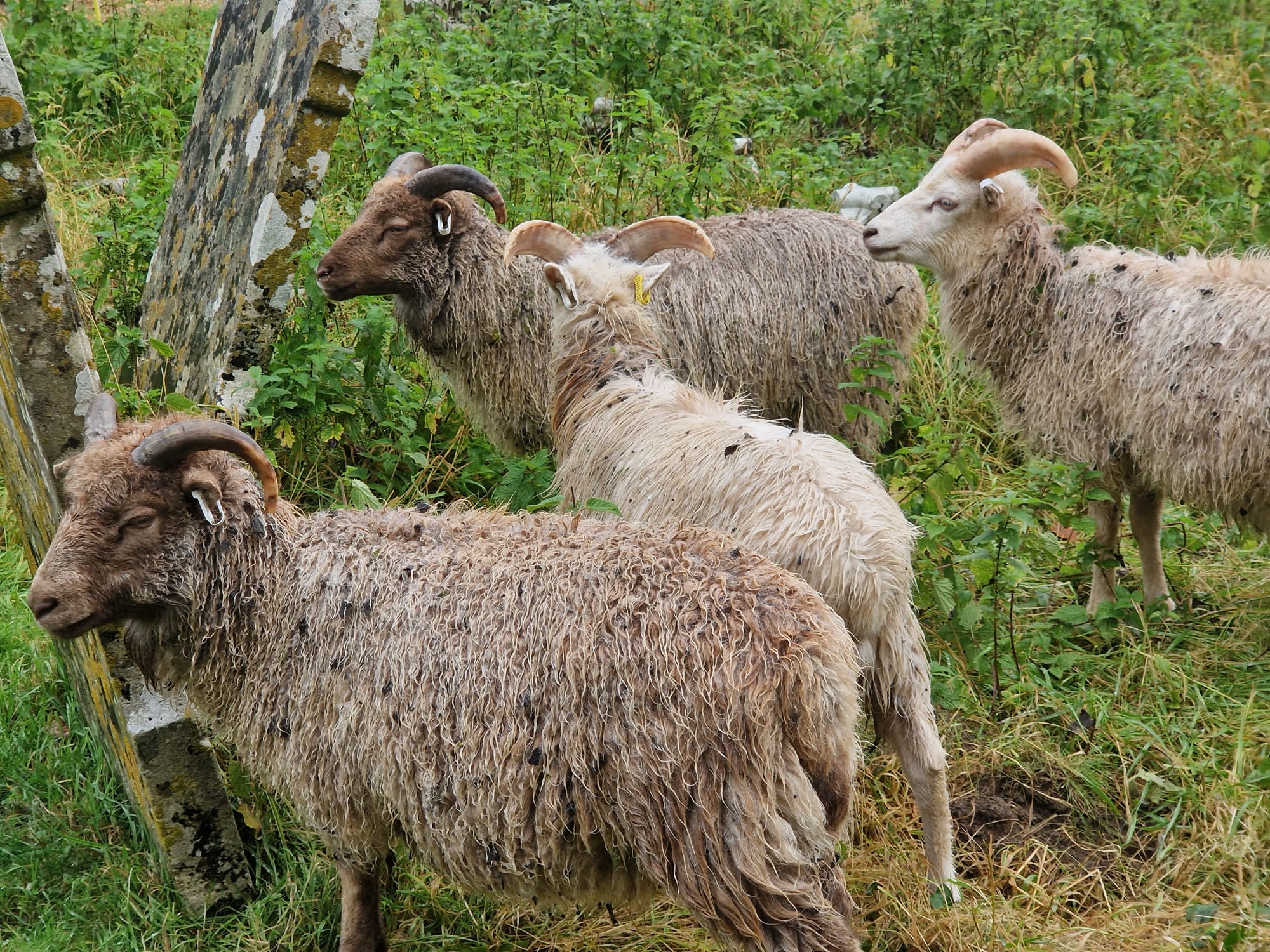 Four sheep have been introduced to help maintain St Wolfrida’s churchyard in Dorset, in order to allow more funds to be put towards protecting the church building against death watch beetle.
Four sheep have been introduced to help maintain St Wolfrida’s churchyard in Dorset, in order to allow more funds to be put towards protecting the church building against death watch beetle.
Church Warden Philip Bailey first suggested the use of livestock to maintain the World War One graves outside the rural church, initially borrowing the sheep which have since been permanently purchased by the parish administrator (and experienced shepherdess!), Ruth Marshall. Local goat farmer Alessandra Savoca loaned some goats to help with the weeding, but these have now had to go home for the winter as they proved too good at escaping!
The remaining sheep are well looked after and closely monitored by 14 members of the "flockwatch" team as well as the Verger, Jackie Lydford, who have all helped to make the project successful.
Mr Bailey said “There have been sheep around the church on and off over the past hundreds of years. St Wolfrida’s is a rural church in a rural setting therefore we should be as simple and as close to the natural world, as the church is humble.”
The sheep are Ronaldsay sheep, a rare breed whose favourite food is weeds.
As well as the sheep, the church community and wider community, of all ages, have brought rakes, shears and strimmers, to maintain the parts of the churchyard the sheep can’t reach. Ruth Marshall said: “It's been a pleasure working with Horton and the Wimborne Villages as a whole, along with Wimborne Minster to support this project.”
The 12th Century Church is sadly being damaged by death watch beetle and £300,000 is needed to repair damage and protect the building for the future.
Fundraising is underway and if you would like to support the work please do so here
Funding enquiries should be sent to parishoffice@wimborneminster.org.uk




